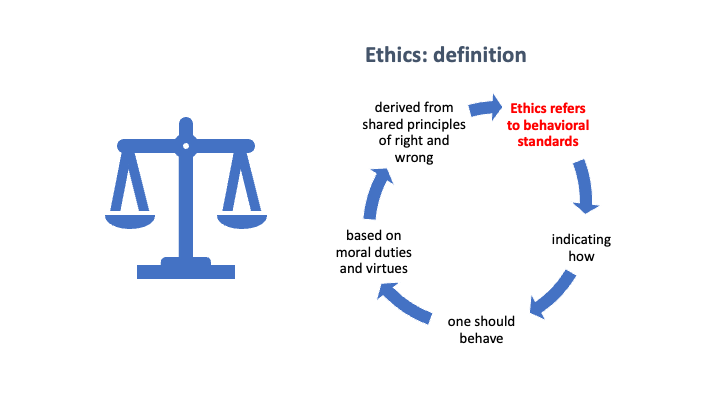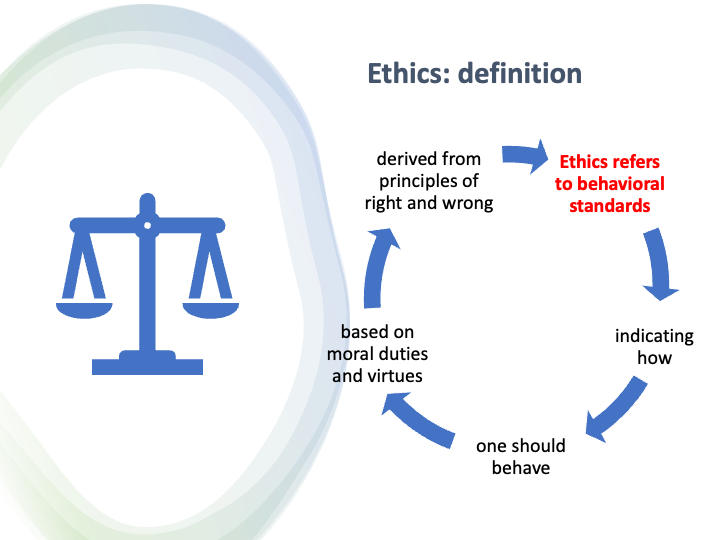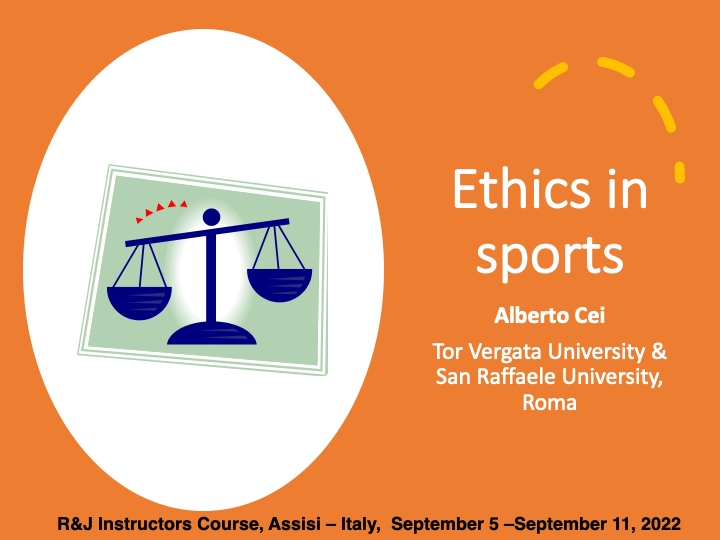In these days when people talk about gambling and broken legality in relation to soccer, it is not useless to remember what should be meant by ethics, which is the approach everyone should have in relation to their choices and behaviors.
Tag Archive for 'etica'
The accusations against Juventus involve artificial capital gains, false salary news, false corporate communications, market manipulation and others. These charges, which obviously need to be proven, lead back to the concept of deception, which is the basis of fraud.
Deception is an action knowingly carried out for the purpose of keeping others from having true and relevant information of which they are unaware. It is an action that is characterized in terms of deliberately seeking deception strategies and ways to implement them.
In addition, deception and fraud are actions that make sense only within the social context in which they are implemented, represent a violation of rights, and take the form of aggressive acts, which in turn are aimed at gaining an unfair advantage over another entity in favor of one of an organization. Corporate fraud has always been a fairly widespread phenomenon that does not only affect the last 15 years of sports history, and those promoted by the management or ownership of the same company represent one of the most frequent types.
Thus, a deviant subculture is formed within the organization for the purpose of separating those who perpetrate it from other people in the company who instead follow the rules and regulations In the case of Juventus, the football players belong to this second category of employees. What they think is hard to imagine and in any case it is their private matter. Certainly there are many situations they face. They concern the future and social image of the club, the effects of the current situation on their contracts, how much their personal sense of ethics and social responsibility will weigh on their work, the possible damage to their public image for playing in a club accused of financial fraud.
It seems to me that I can say that, the team, having to continue the competitive season effectively in any case, can succeed if as a group it renews its values of cohesion and those of social responsibility it has toward other teams and the broader social context they represent.
Broken nets, garbage abandoned inside but above all profanity and swearing spoiled the atmosphere of the oratory. For this reason Don Franz Vicentini, pastor of St. Joseph’s Church in Cocciano, one of Frascati’s (Roma) most populous neighborhoods, closed the oratory. Parents liked the decision; I wonder if it was only other people’s children who manifested these behaviors.
What are the role models for these young people? The soccer players who constantly complain to referees or the coaches who use their role to express themselves violently? Or the bully friends?
Young people are responsible for their actions. Who, however, are their teachers? Who provides them with the standard behaviors to act ethically?
Today conference to international boxing referees and judges during a Refresher Course organized by the International Boxing Federation. The topic is little talked about but of great interest and concerned ethics in sport.
It is an area that is too little talked about and often only limited to doping. On the contrary, however, each of us is continually immersed in ethical choices in our daily lives. No one can disregard evaluating whether what he or she is doing is right or wrong, is ethical or not. To which morality our actions respond we are for God, Fatherland and Nation or for Liberty, Equality and Fraternity, we are for spreading the culture of work or for amoral familism.
Arbitration is a complex activity that requires individuals with effective and efficient psychological development that enables them to make decisions as objectively as possible, accepting that they can also make mistakes. They must learn to handle the stress related to the sporting situations they encounter and which they must evaluate with care, depth of judgment but also with speed and efficiency.
I talked about how every human being has developed biases in his or her life and how the referee should shed them competently and also through specific psychological preparation.
Interview at Giuseppe De Rita on Repubblica.it
So what? Where do these violent and widespread behaviors come from? “They are the result of a collective culture, to which the bourgeoisie is certainly no stranger, which enhances the competitive part of each of us. They are the children of a great wave of subjectivism that, if it is not governed by ethics, comes to produce this reality. We have taught our children that it is necessary to emerge, to excel, there are those who can do it by going to train at Bocconi, doing internships in companies of name. And who, instead, tries to emerge in his community with what he has: martial arts, muscles, the big voice, what it takes to overcome others. Nothing new: those who have less culture express themselves in this way, they rely on physicality to appear, to emerge”.
In short, a desolating anthropological desert. “Subjectivity is the real evil of these last 50 years. If everything becomes subjective, subjective is also ethics and the search for freedom from everything and at all costs. This is how it is among young people who fight or rape to emerge as in the world of economics: if we recognize that personal subjectivity wins over everything, then it is easy to understand how to get to Colleferro”.
Do we teach ethic and moral values to the children and youth athletes?
Watch this interesting video.

Today in Roma there will be the Conference of Reinhard Stelter regrading the social individual value connected to the coaching process, I propose again the review of his book about this topic.
A Guide to Third Generation Coaching
Reinhard Stelter
Dordrecht: Springer Science, 2014, p.254
http://www.springer.com/new+%26+forthcoming+titles+(default)/book/978-94-007-7185-7
This book talks about coaching from a societal perspective. Since the beginning coaching has been interpreted as a process to increase managers’ skills and in any case as a system to approach and solve problems. Third Generation Coaching is oriented on values and create meaning underlying aspirations, passions and habits. This concept remember me the Amartya Sen identity idea, when he explains that every day we are part of different groups and in this way we have a multiple identity, build on this different contexts and roles. Thus, Third Generation Coaching talks about our identity, view as interpersonal process continuously in movement. Coachees and coaches live a space of self-reflection not to improve specific competences but to permit to the coachees to know better themselves and may be to see their life in a new perspective. Really, this coaching vision is an invitation to change stride, moving to a different interpretation of our life. For this reason Stelter underlines the main role played by values “as important landmarks for navigating in life.” Today where financial fraud in business and doping in sport are so diffuse, a changing process based on values and ethics became fundamental to guarantee social respect and freedom form illegal actions. In fact, Stelter developed this new coaching approach in a time where values are not very well represented in our society, where at the contrary every day the newspapers published news about bankruptcies or doping cases like the most famous is Lance Amstrong fall. The book talks about the necessity to build in professional or every life meaning-experiences, based on our past stories and the present in order to have a better future. Third Generation Coaching changed also the coach role, he/she became a facilitator of the coachee’s reflections concerning is cultural roots and social relations, very important because determining his/her confidence into the social environments. Third generation coaching proposes a form of dialogue where coach and coachee are focused on creating space for reflection through collaborative practices and less concerned with fabricating quick solutions. Aspiring to achieve moments of symmetry between coach and coachee, where their dialogue is driven by a strong emphasis on meaning-making, values, aspirations and identity issues. Coach and coachee meet as fellow-humans in a genuine dialogue. I can say that also in sport we assisted in an evolution of this kind in the program of athletes’ mental coaching. Till 10 years ago the programs for them were related almost exclusively to increase specific mental skills, to use during the most important events. At this approach, successively, has been added an approach more oriented to reflect about their life style, to the positive role the athletes can play in our society, to doping as negative value for them and for the society because based on deception.
The development of mental toughness has often been regarded as a strictly individual factor and we have few information to understand how the sport organizations show and build their culture of toughness and how this promotes the athletes’ toughness .
The article by Eubanks, Nesti e Littlewood (2017), A culturally informed approach to mental toughness development in high performance sport, IJSP, 48, 206-222, revived some new insights about this topic.
The purpose is to explore the importance of culture in the development of Mental Toughness (MT). This is done by means of a critical review of the current literature that exists in relation to the conceptualisation, definition and development of the concept. We argue that despite recent advances in our understanding, most research into MT has focused on the characteristics of mentally tough individuals. Although important and useful, the role of the environment, culture and context, and how these impact MT and its development has been given somewhat less attention and is perhaps not well integrated into practice.
The notion of Mental Toughness (MT) being broadly represented by “the ability to achieve personal goals in the face of pressure from a wide range of different stressors” (Hardy et al., 2014).
One of the criticisms frequently levelled at psychology as an academic discipline is that it often focuses on the individual, and forgets, or ignores the environment within which the individual exists.
Culture may be best seen as the hidden yet influential force, involving core values, beliefs, and traditions that operates as a type of soft power, which shape the working practices, ideas, strategies and philosophies of groups and individuals.
Weinberg et al. (2011) focused on the views of ten National Collegiate Athletic Association head coaches, who reported that a tough physical practice environment, a positive men-tal environment and an environment that provided mental toughness awareness and learning opportunities were fundamental to MT development.
The authors said that is clear that the optimum environments to build MT are those that are imbued with a challenging and stimulating culture, where personal responsibility is emphasised in all things.
Often the daily facts help more than words to explain concepts that otherwise seem just pretty words often too far from the reality. The sport fairness, the desire to play and to give up to an easy victory, to prefer the values of healthy sporting competition are all concepts that become tangible in the episode described below and published in the Italian newspaper “Gazzetta del Mezzogiorno.” Here’s what ithappened in Foggia, in the youth national football championship (14-16 years old).
“For many it does not matter how to win, the important thing is to win. This thought did not touch at all the ersmanag and players of the National League Pro Soccer of Foggia team on sunday morning – on the pitch of Rocchetta Sant’Antonio, a small village in the Apennine Daunus – waiting for the arrival of the same age team – Ischia Green Island – to play the match … It was scheduled at 11am, but just few minutes from the kick-off the team Ischia there was no there, until the call of the Ischia manager: “We have a wrong turn and ended up at a dead end by a landslide. The bus is stuck and we try to walk.” … they understood immediately that Ischia team by walking, it would never come on time. So instead of thinking about the game, they would have won without playing, the Foggia manager alerted the Police, the local branch of Civil Protection, and they started a procession of cars made by the inhabitants of Rocchetta Sant’Antonio, parents of boys and also by the parents of the Ischia boys who had come regularly to the Ischia field. The aid has paid off . The boys arrived at the Ischia field half an hour after the scheduled start of the match, but just in time to play … The moral: win is nice, but only after playing , because winning without playing is as if I did not win” (from La Gazzetta del Mezzogiorno).
(by Daniela Sepio)









